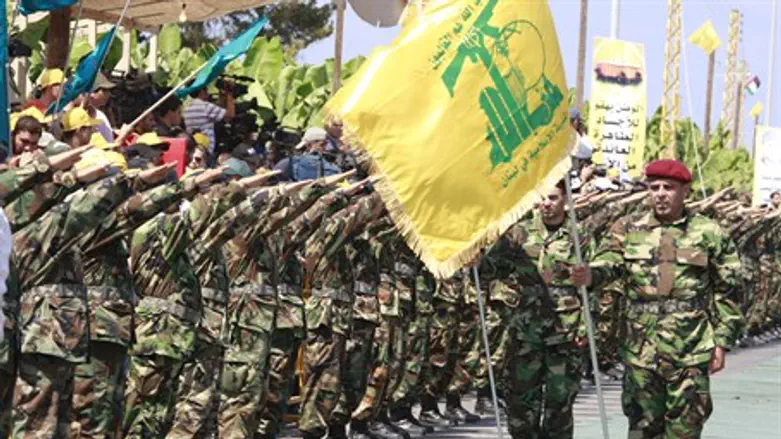
Arab media outlets have been reporting that the Syrian military sites struck on Sunday, allegedly by Israeli jets, were being used to store arms destined for Hezbollah.
Shortly after the strikes, rumors circulated the sites - including Damascus International Airport and the Dimas airbase - were being used to store sophisticated weapons, including Russian-made S300 surface-to-air missiles.
The opposition-affiliated Syrian Observatory for Human Rights stated that the targets were being used for military purposes.
"Both were military sites, and weapons were being stored there," Observatory director Rami Abdel Rahman told AFP.
The London-based pan-Arab Al-Quds Al-Arabi paper seemed to confirm those claims Monday, with a report citing unnamed Syrian officials claiming Dimas airbase contained recently-delivered, Russian-made air-defense missile systems - an apparent allusion to the S300 system.
But media outlets close to Hezbollah sought to play down the importance of the sites struck.
The Lebanon-based Al-Akhbar claimed that a total of eight "Israeli aircraft" were involved in the strike, but while admitting that the Dimas airbase was a "military hangar," it said the second target hit - Damascus International Airport - was merely a site for loading and unloading civilian cargo.
Another pro-Hezbollah Lebanese outlet, As-Safir, offered a slightly different version of events, acknowledging that military targets were targeted, but that the bombs failed to hit their target.
Israeli officials have remained tight-lipped, as in previous apparently Israeli strikes against "game-changing" arms destined for Hezbollah.
But speaking to public radio Monday, Intelligence Minister Yuval Steinitz appeared to allude to the strikes, and reiterated that Israel would prevent sophisticated arms from reaching the hands of terrorists.
"We have a firm policy of preventing all possible transfers of sophisticated weapons to terrorist organisations," Steinitz said.